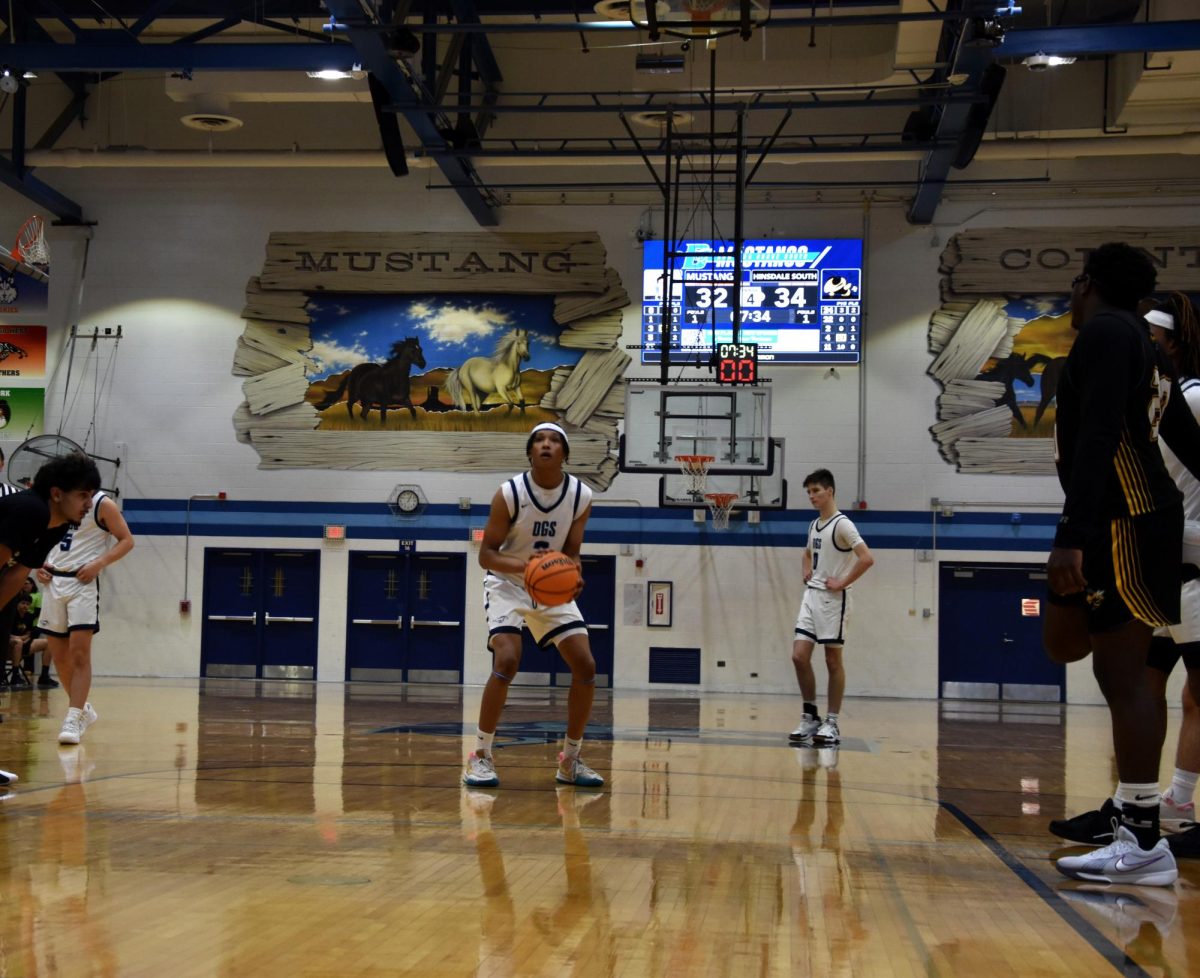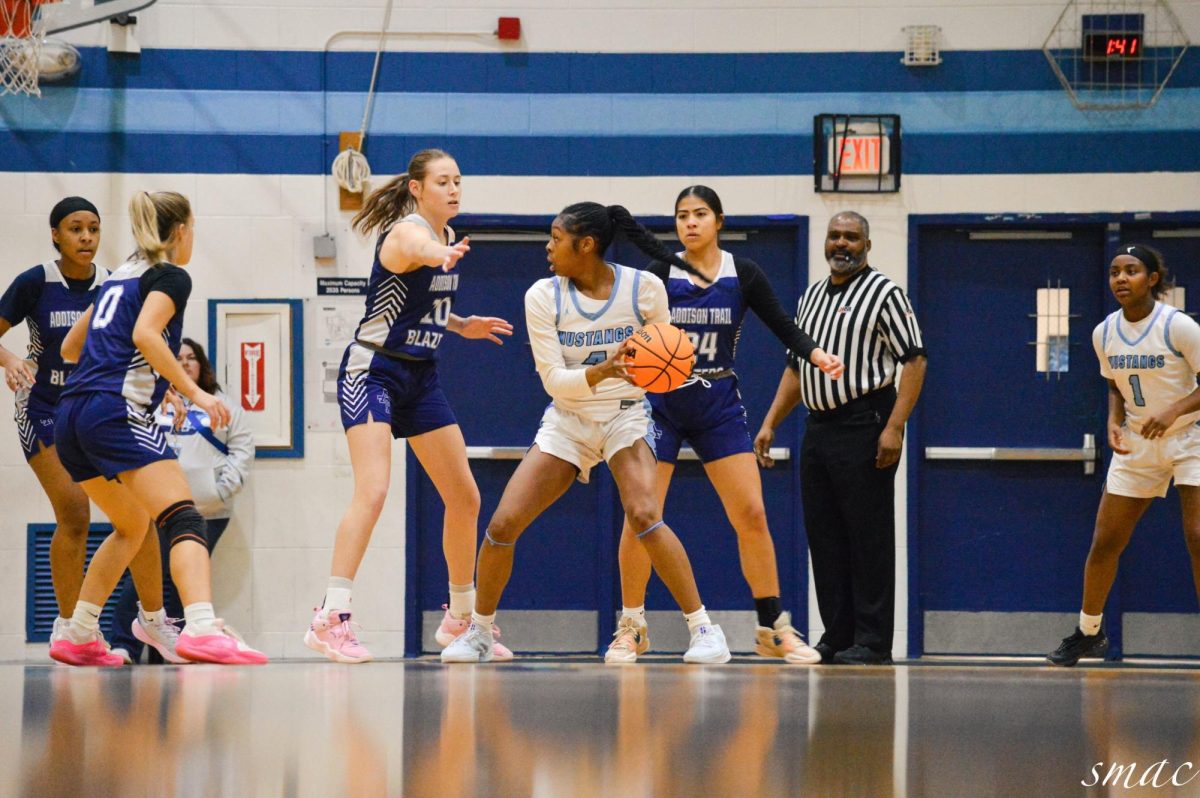Senior Dominick Sarno stares into the bright screen of his Chromebook, scanning the list of assignments he has to complete for the day. After a brief pause, he shuts the laptop–leaving the work unfinished.
“I knew I had senioritis when I was doing better in anatomy and physiology than photography. Digital photography one. My grade for anatomy was a 62%,” Senior Dominick Sarno said.
“Senioritis” is a term often used to describe a decline in motivation, specifically in graduating seniors. It is most noticeable during second semester, but it can be more than just a lack of effort—it’s often rooted in stress, burnout and uncertainty about what comes next.
For some students, senioritis can be a minor slump. For others, the phenomenon of senioritis can be debilitating.
“We’re trying. We are really trying to finish strong. We’re trying our hardest but it’s so difficult when we’re trying to balance going into college, after-school activities, clubs, all of our classes right now, prom is coming up, graduation. As a tradition, senior sunset. We have so much coming up–we are a little overwhelmed,” Sarno said.
Social Worker Tracy Salvator believes that some may underestimate the stress of senior year.
“When I talk to younger students I think that they anticipate that senior year is easy peasy. It’s just going to be; ‘it’s great, I’m out the door, so excited’ or even students saying to current seniors ‘I’m so jealous, that’s so great,’ but sometimes the closer you get to the finish line, the harder it is to not be at the finish line,” Salvator said.
Math teacher Kerri Hayes enjoys teaching a senior class, but it comes with its challenges, such as adapting a lesson plan to fit student engagement without falling too far behind.
“Senior students have a lot going on outside of class, whether they are working, or applying for colleges, or involved in activities, sports–etc,” said Hayes. “It is challenging to create lessons that build on previous days’ work, knowing that some students didn’t complete the assignment and may not be ready to move on. But mostly, it is difficult to motivate these young adults to finish strong, and stay in the present.”
This perceived decrease in effort is not only frustrating to parents and teachers–it can also have dangerous academic consequences that transcend high school. While many see it as a harmless phase, senioritis can have heavy consequences on a student’s future.
According to a study done by The National Association for College Admission Counseling, in 2009, 22 percent of colleges reported that they had revoked an admission offer that year. About two-thirds of those revocations were a result of poor grades senior year.
While current data on college acceptance revocations is somewhat outdated, recovations can and do happen. On another note however, many students are left scrambling to catch back up just to graduate or stay off of social probation.
“I know for me personally, my counselor has been on me about one course he’s scared I’m not going to pass. But I know for a fact I’m going to be okay because my grade is slowly going up little by little. So I think if teachers and counselors could understand us right now, it’s that we are trying. You just can’t force us to do anything; because it’s just going to make us take more steps back and more breaks,” said Sarno.
One of the hardest struggles revolving around senioritis is how to treat it. Since it varies so widely from person to person, it can be difficult to classify it.
“Senioritis is a thing, but it doesn’t always have a functional impairment on people so just like, I can feel sad, but depression is a whole other thing. It has a functional impairment, it’s so severe that it’s in the way of me accomplishing my goals and I feel like senioritis can be put in that same continuum.” Salvator said.
Aside from internal lack of motivation, financial situations are also a cause for concern for students such as senior Maija Kolakowski. Many students are scrambling with questions regarding FAFSA (Free Application for Federal Student Aid) and other forms of aid.
However, senioritis does not affect all students, such as Jordan Parrott.
“Going into senior year, I knew I wanted to finish strong and leave an impression on the school as I leave it. I think having a good motivator like sports can keep you in the right mindset going forward,” Parrot said.
However, Kolakowski touches on how difficult it can be to push through with not many school-sanctioned things to look forward to.
“I feel like there’s nothing fun for me to look forward to here. I’ll hear schools that students get to paint their parking spot, senior pranks which I understand we can’t do. All these cool senior activities that they get to do associated with the school,” Kolakowski said.
There are methods that teachers and staff can use to identify when senioritis is a sign of deeper emotional struggle and can be key to helping students recover before it’s too late.
“I think that the first thing that probably comes to mind for me is starting a conversation with the student. Relationship building is really emphasized in our school, specifically, and I think the more that you have a relationship with someone the more that you can observe their changes or difficulties,” Salvator said.
For many, senioritis is more than just a term tossed around to describe some lazy students. It reflects a real shift in priorities, motivation, and stress levels as graduation approaches.
Recognizing the patterns and pressures behind senioritis could be the first step in helping future seniors finish their high school careers with both stability and support.






![In this documentary, you will learn how violins are made. All music is in the public domain:
Music Produced by Deutsche Grammophon, Medici TV, Heifetz Institute, and Queen Elisabeth competition
Paganini, Caprice No. 24 [Song recorded by Jasha Heifetz]. Heifetz Institute. (Original work published 1817)
Paganini, Caprice No. 24 [Song recorded by Jasha Heifetz]. Heifetz Institute. (Original work published 1817)
Bartok, Sonata No.1 for Solo Violin [Song recorded by Kevin Zhu]. Queen Elizabeth Competition. (Original work published 1944)
Paganini, Violin Concerto no. 1 [Song recorded by Philippe Hirshhorn]. Queen Elizabeth Competition. (Original work published 1819-1825)](https://southblueprint.com/wp-content/uploads/2025/05/Screenshot-2025-05-07-122429-1200x668.png)






